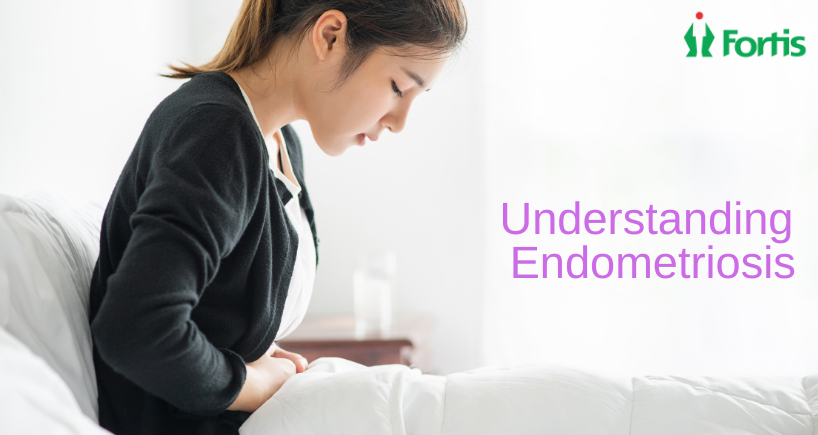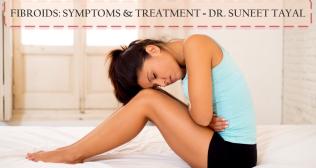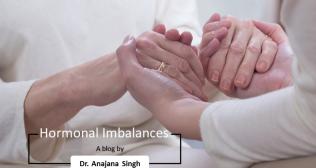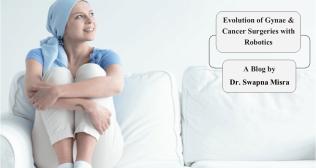
Understanding Endometriosis - Symptoms, Causes Treatments - Dr. Manisha Rajpal Singh
Endometriosis is a chronic and often debilitating medical condition that affects millions of people worldwide, primarily those with reproductive systems. Despite its prevalence, endometriosis remains widely misunderstood and under diagnosed. In this blog post, with my expertise as a medical professional specializing in women’s health,
we will delve into what endometriosis is, its symptoms, diagnosis, treatment options, and the physical and emotional toll it can take on those who live with it.
What is Endometriosis?
Endometriosis is a medical condition in which tissue similar to the lining of the uterus (endometrium) grows outside the uterus. This tissue can be found on various organs within the pelvic region, such as the ovaries, fallopian tubes, and the lining of the pelvic cavity. In rare cases, it can even spread to other parts of the body, like the caesarean section scar, lungs, and nose.
Symptoms
Endometriosis is known for its wide range of symptoms, which can vary in severity. In some cases however, there may be no symptoms and endometriosis may be an incidental finding e.g., during infertility work up, or during a general health check. However, the common symptoms include:
Pelvic Pain: The most prevalent symptom is often severe pelvic pain, which can occur during menstruation, ovulation, or even randomly throughout the menstrual cycle.
Painful Periods (Dysmenorrhoea): Many individuals with endometriosis experience excruciating menstrual cramps that may not respond well to over-the-counter pain relievers.
Painful Intercourse (Dyspareunia): Sexual intercourse can become painful due to the presence of endometrial tissue outside the uterus.
Gastrointestinal Symptoms: Some individuals with endometriosis may experience digestive issues such as diarrhea, constipation, bloating, or nausea, especially during their menstrual cycle.
Infertility: Endometriosis can lead to fertility problems, as it can obstruct or damage the reproductive organs, especially affect egg reserve in the ovaries and distort pelvic anatomy.
Fatigue: Chronic pain and the stress of living with a chronic illness can lead to extreme fatigue.
Diagnosis
Diagnosing endometriosis can be challenging as its symptoms can mimic those of other conditions. Diagnosis typically involves a combination of the following:
Medical History: A detailed discussion of symptoms and medical history is crucial.
Pelvic Exam: A physical examination may help detect abnormalities or cysts.
Imaging: Ultrasound or MRI scans can provide a clearer picture of the pelvic area.
Laparoscopy: The most definitive way to diagnose endometriosis is through laparoscopic surgery, where a thin camera is inserted through a small incision in the belly button, to directly view and remove endometriotic tissue.
Treatment Options
While there is no cure for endometriosis, several treatment options are available to manage symptoms and Improve quality of life:
Pain Medications: Over-the-counter pain relievers, such as nonsteroidal anti-inflammatory drugs (NSAIDs), can help manage pain.
Hormone Therapy: Hormonal treatments like progesterone only pills, birth control pills, hormonal IUDs, or GnRH agonists can help reduce pain and slow the growth of endometriosis tissue.
Surgery: Laparoscopic surgery can remove endometriosis growths and scar tissue, potentially improving fertility and relieving pain.
Lifestyle Modifications: A healthy diet, regular exercise, and stress management can help alleviate symptoms.
Alternative Therapies: Some individuals find relief through acupuncture, yoga, or dietary supplements, although these methods vary in effectiveness.
Conclusion
Endometriosis is a complex and often misunderstood condition that affects many aspects of an individual’s life.
Early diagnosis and effective management are essential to minimize its impact. If you or someone you know is experiencing symptoms of endometriosis, it’s crucial to seek medical advice and support. Living with endometriosis can be challenging, but with the right treatment and a supportive network, individuals can find ways to manage their symptoms and improve their quality of life.
Written by Dr. Manisha Singh is an eminent Gynaecologist and a Subspecialist in Reproductive Medicine & Surgery
Categories
Clear allMeet the doctor

- Obstetrics and Gynaecology | Obstetrics and Gynaecology
-
32 Years
-
1300



















